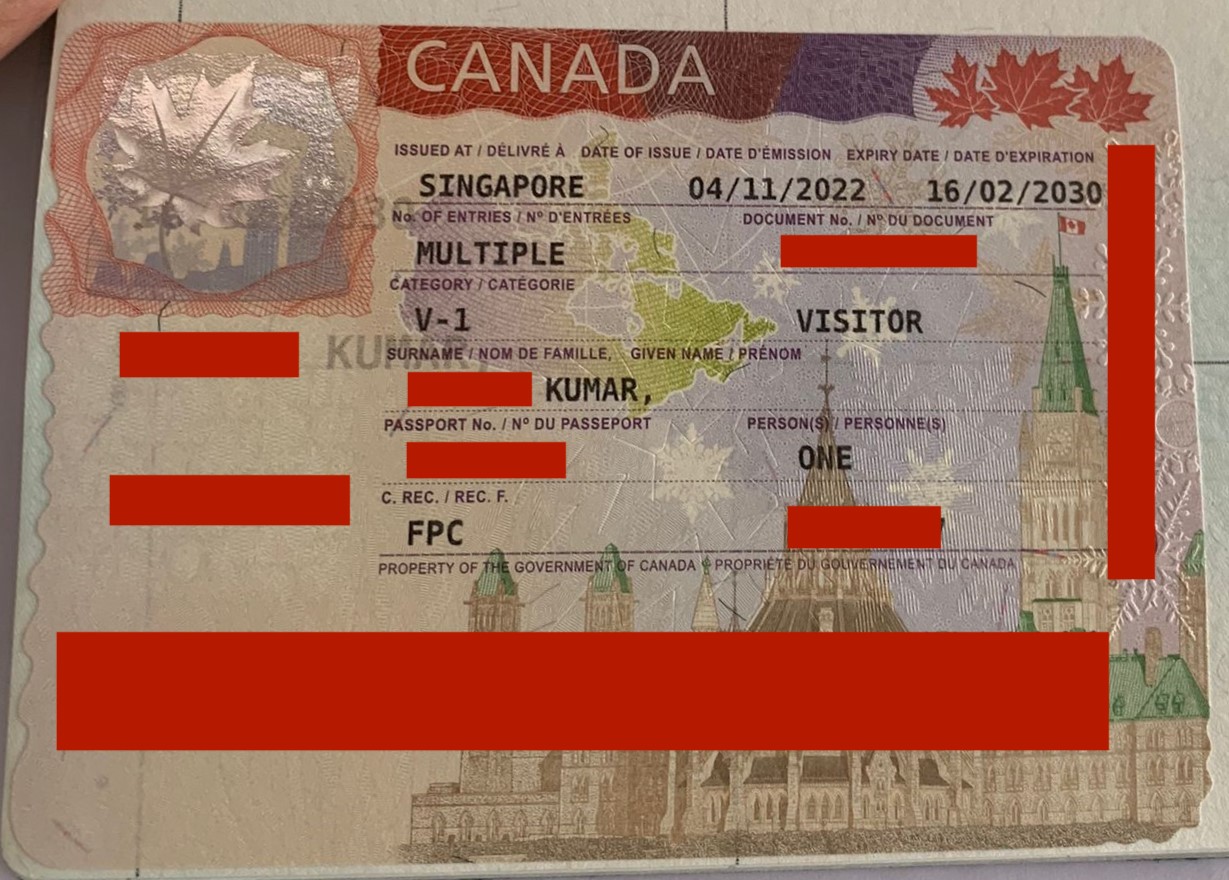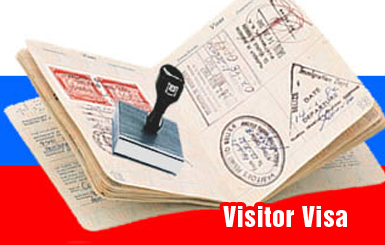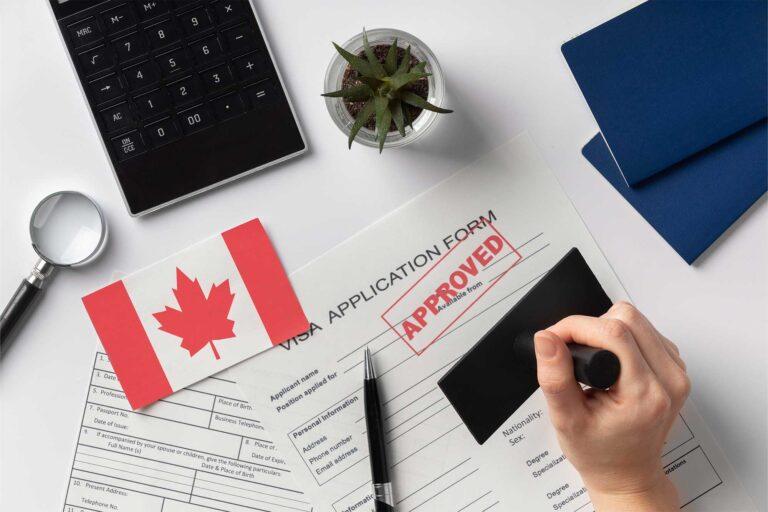Want a Visitor Visa to Canada? Here’s What You Really Need to Get Approved
If you’re thinking about visiting Canada, you’ve probably asked yourself, “Want a Visitor Visa to Canada? Here’s What You Really Need to Get Approved.” The truth is, getting that approval takes more than just submitting an application. You need to prove that you have strong ties to your home country, a legitimate reason for your visit, and enough financial means to support yourself while you’re here. Immigration officers are trained to look for red flags, so your documents must clearly show that you’ll return home after your trip. A clean travel history, employment verification, and a solid explanation of your visit’s purpose can make all the difference. If you’re serious about success, make sure your application answers that big question: “Want a Visitor Visa to Canada? Here’s What You Really Need to Get Approved.”
Dreaming of visiting Canada? Whether it’s to explore its stunning landscapes, attend a family wedding, or connect with business contacts, getting a Canadian visitor visa (Temporary Resident Visa or TRV) can feel like the first mountain to climb.
Here’s the truth: most visitor visa refusals happen for one reason: weak ties to your home country.
Yes, you may have submitted all the required documents. But to the immigration officer reviewing your application, the question isn’t just “Do you qualify to visit?” It’s:
“Will you leave when your visa expires?”
If you don’t convince them with solid, verifiable ties back home, your application could be denied, even if your documents are technically complete.
Let’s break down what IRCC looks for, what mistakes to avoid, and how to make your application stronger from the start.
Why IRCC Refuses So Many Visitor Visa Applications
If you’ve ever thought, “Want a Visitor Visa to Canada? Here’s What You Really Need to Get Approved,” the first thing to understand is that IRCC doesn’t refuse applications because people want to visit Canada, they refuse them because they believe those same people may not leave. Canadian immigration officers are trained to assess more than just your documents; they’re trained to assess your intentions. And the biggest red flag? The suspicion that you might use the visit as a stepping stone to stay in Canada permanently.
Even if your application seems simple, officers are asking one major question: What will guarantee this person returns home? That’s why they examine your ties to your home country, your job, education, financial stability, family commitments, and long-term plans. If those ties are weak or poorly explained, your application may not stand a chance.
Here’s where most applicants go wrong:

❌ Vague Travel Plans
Saying you’re “just visiting” or want to “see the sights” without a clear itinerary, dates, or confirmed plans makes your application look thin. Officers want to see a real purpose, whether it’s tourism, family visits, a wedding, or a specific event.
❌ No Proof of Employment or Studies
If you’re unemployed or fail to include solid documents like job letters, pay stubs, or school enrollment, the officer may assume you have nothing pulling you back home which can be a major reason for refusal.
❌ No Explanation of Who’s Funding the Trip
Simply saying “I’ll pay for it” or attaching a bank statement isn’t enough. Officers want to see how the trip is being financed and whether that funding is consistent with your job, lifestyle, or support from a sponsor.
❌ Mentioning You’re Exploring Immigration Options
This is a huge mistake. If you tell the officer you’re using the trip to “explore your options” or “look for jobs,” it raises an immediate red flag. A visitor visa is for temporary stays only, and anything suggesting permanent intent almost guarantees a refusal.
If you want your application approved, think beyond paperwork. IRCC is analyzing your story, your motivation, and your credibility. So before asking “Want a Visitor Visa to Canada? Here’s What You Really Need to Get Approved,” ask yourself this: Does my application clearly show I have more reasons to return home than to stay in Canada? If the answer is yes and the documents prove it, you’re in a much stronger position.
The Must-Have Documents for a Visitor Visa Application to Canada (and How to Use Them to Tell Your Story)
If you’re asking, “What documents do I really need to get my Canadian visitor visa approved?” you’re not alone. The truth is many applicants make the mistake of uploading one or two generic documents and hoping for the best. A single bank statement or hotel booking isn’t enough. IRCC doesn’t just look at what you’re showing, they read between the lines.
Your visitor visa application should tell a complete, believable, and well-supported story. A story of who you are, why you’re visiting, and most importantly, why you’re going back home afterward. Below is a detailed breakdown of the documents you need and how to use them strategically.
✔️ Proof of Employment and Income: Anchor Your Reason to Return
Your employment is one of the strongest indicators that you’ll leave Canada when your visit ends. This isn’t just about showing you have a job, it’s about proving you have roots and responsibilities pulling you back home.
What to include:
- A recent job letter stating your position, salary, how long you’ve worked there, and confirmation that you’ll return to work after your trip.
- Pay stubs from the past 3 months. Not just one or two. Consistency matters.
- An employment contract or HR confirmation email that clearly lays out your terms of employment.
- Business registration, tax filings, or invoices if you’re self-employed. Show the officer you have a business to run and clients depending on you.
Tip: Tie your job into your travel plans. For example, “I’m using my annual leave to visit family and will return to work on [date].” That kind of detail matters.
✔️ Invitation Letter (If Someone in Canada Is Inviting You)
If someone in Canada is hosting you, your application needs to reflect their credibility as well as yours. This letter should be thorough, honest, and match the rest of your documentation.
What the invitation letter should include:
- Full details about the host: name, address, phone number, and legal status in Canada (e.g., citizen, PR, work permit holder).
- The reason for the invitation: a wedding, vacation, medical support, or family reunion.
- The dates and duration of your stay.
- A clear statement on who’s covering the expenses: you, them, or both.
No invitation? No problem. You can still submit a compelling application by showing a detailed travel itinerary, including:
- Hotel reservations
- Day-by-day activity plans
- Tour bookings or ticket confirmations
The key: Don’t leave the officer guessing about why you’re coming or where you’ll be staying.
✔️ Financial Documents: Prove You Can Afford the Trip Without Working
Financial stability is non-negotiable. IRCC wants to see that you can support yourself fully and independently during your visit. If your funds don’t match your travel plans, that raises serious red flags.
What to include:
- Recent bank statements (past 3–6 months) that show not just deposits, but regular income and spending habits.
- Details on credit card limits, savings accounts, or fixed deposits.
- If someone else is sponsoring you, include a letter of financial support and their financial documents (e.g., their job letter, bank statements).
Warning: Never use fake bank letters or online-generated balances. IRCC can verify them and misrepresentation leads to instant refusal and possibly a 5-year ban.
✔️ Travel History: Your Reputation as a Rule-Follower
Your travel history shows that you’ve visited other countries and respected their visa rules by returning home. This builds trust.
What to include:
- Copies of old visas (especially to the U.S., U.K., Australia, or Schengen countries)
- Entry and exit stamps in your passport
- Any past Canadian visas or border entry records, if applicable
Pro tip: If you’ve never traveled before, that’s okay just make the rest of your case even stronger through employment, family ties, and financial documentation.
✔️ Return Travel Evidence (Optional but Powerful)
IRCC doesn’t require you to buy a plane ticket before getting your visa, but if you do have a return booking or even a reservation it adds credibility.
Options to include:
- A confirmed return flight
- A reservation from a travel agency (even one on hold)
- A note in your cover letter explaining your departure plans
If you don’t include a return ticket, make sure to clarify that you will book once your visa is approved and include evidence of the funds to do so.
Final Thought: This Isn’t Just About Forms—It’s About Telling a Story
Canada doesn’t refuse visitor visas just because they can. They refuse them when they’re not convinced that the person will leave at the end of their visit. Every document you include should support your story: why you’re visiting, how you’ll support yourself, and why you’re definitely going back home.
So before you hit submit, ask yourself: “Does this application show who I am and why I can be trusted to respect the rules?”
And if you’re still unsure, remember “Want a Visitor Visa to Canada? Here’s What You Really Need to Get Approved” is more than just a question… it’s a strategy.

What Not to Say in Your Visitor Visa Application
Even a solid application can be derailed by the wrong phrasing. Avoid:
- “I want to explore immigration opportunities in Canada.”
This tells the officer you might not leave.
- “I’m not sure where I’ll stay yet.”
Uncertainty raises concern. Even a hotel reservation adds confidence.
- “I’m hoping to look for work while I visit.”
A visitor visa (Temporary Resident Visa or TRV) does not allow you to work in Canada. Mentioning work intentions will likely get you refused.
Why So Many Visitor Visas Are Refused, and How We Help Avoid That
Every year, thousands of Temporary Resident Visa (TRV) applications are refused, often because applicants underestimate the level of detail and strategy required. They assume a few documents and a short explanation are enough. But IRCC officers are trained to look for patterns, inconsistencies, and potential overstays.
At Akrami & Associates, we help you prepare your visitor visa application like a legal submission, not a travel brochure. We go beyond checklists to build a personalized case that demonstrates:
- Strong home ties
- A clear and lawful reason for visiting Canada
- Financial independence
- A low risk of overstaying
We understand what immigration officers are trained to look for, and more importantly, what makes them say yes.
Related Immigration Services from Akrami & Associates
If you’re serious about visiting Canad aand want to avoid delays, refusals, or last-minute stress, Akrami & Associates offers tailored support to make your application as strong as it can be. We don’t just fill out forms; we craft a complete legal story that aligns with your goals and meets IRCC’s expectations.
Here’s how we help:

Visitor Visa (Temporary Resident Visa or TRV) Applications
Applying for a visitor visa may seem straightforward, but one missing document or vague answer can trigger a refusal. Our team carefully reviews your case to ensure everything, from your travel purpose to your financials and home ties is clearly presented and properly supported. We’ll prepare your forms, help you write a compelling personal statement, and structure your application to highlight your credibility and return intent.
We don’t just submit, we advocate.
Visitor Visa Refusal Appeals and Reapplications
Been refused before? Don’t panic. A refusal doesn’t mean the end, it just means you need a stronger approach. We’ll analyze the refusal reasons, order your GCMS notes (the officer’s internal comments), and create a revised application strategy that directly addresses what went wrong. Whether it’s weak documentation, poor travel history, or unclear ties to your home country, we know how to rebuild trust with IRCC.
We turn no into a strong second chance.
Invitation Letter Drafting and Legal Review
If you’re being invited by someone in Canada, their letter isn’t just a formality, it’s a key piece of evidence. We draft and review legally sound, persuasive invitation letters that outline the relationship, visit purpose, financial responsibility, and length of stay. We ensure the language used won’t trigger suspicion or sound like a disguised immigration attempt.
Spousal and Family Visitor Visas
Want to bring your spouse, partner, parents, or children for a visit? These applications are emotionally important but can also be risky if not handled properly. We’ll help you prove the relationship is genuine, demonstrate ties to the home country, and ensure the visit doesn’t appear to be a disguised attempt at sponsorship or overstay.
We treat family applications with the care and strategy they deserve.
Business Visitor Entry for Conferences and Networking Events
Attending a trade show, industry conference, or professional networking event in Canada? Business visitor entries require a different approach, including support letters from your employer, event confirmations, and proof that you’ll be returning to your country post-trip. We tailor business visitor visa files to meet both immigration expectations and corporate timelines.
When timing and image matter, we deliver professional precision.
Why Work with Akrami & Associates?
✅ 20+ years of immigration experience
✅ Thousands of visitor visa cases handled successfully
✅ We understand how immigration officers think and how to speak their language
✅ Fast, responsive, and tailored service for individuals, families, and corporations
Whether this is your first time applying or you’ve faced a refusal before, we don’t take chances with your future, we build solid, strategic cases that get noticed.
Want to visit Canada? Let’s make it happen the right way!
Frequently Asked Questions (FAQs)
- What are the chances of getting a visitor visa to Canada?
Approval depends on your profile, travel history, ties to your home country, and how well your application is prepared. With a strong file, your chances improve significantly. - Can I apply for a visitor visa without an invitation letter?
Yes. An invitation letter is helpful but not mandatory. You can apply with a strong travel plan, hotel bookings, and proof of financial support. - Can I work in Canada on a visitor visa (Temporary Resident Visa or TRV)?
No. A visitor visa does not authorize you to work in Canada. Doing so could result in removal and future inadmissibility. - Do I need to book a return flight before applying?
It’s not mandatory, but if you can show a return flight or travel itinerary, it helps demonstrate that you intend to leave Canada on time. - I got refused before, can I apply again?
Yes, but only after fixing the issues that led to the refusal. Simply reapplying without changes will likely result in another denial. Our firm can review your refusal letter and help you build a stronger reapplication.
Let Akrami & Associates Help You Get Your Visitor Visa Approved
A visitor visa application may look simple on the surface, but the truth is, it’s often one of the most scrutinized applications in Canada’s immigration system. Don’t leave it to chance or guesswork.
At Akrami & Associates, we take your goals seriously. Whether you’re coming for tourism, family, business, or personal reasons, we help you submit a file that speaks confidently and legally.
📞 Contact us today for a consultation.
There’s always a way, and we’ll help you find it.
Office Location
Akrami & Associates Immigration Law Firm
1440 Hurontario St, Suite 200
Mississauga, ON L5G 3H4, Canada
Phone & Fax
Telephone: +1 416‑477‑2545
Toll‑Free: 1‑877‑820‑7121
Fax: +1 905‑274‑5554
Email: Info@thevisa.ca
Latest Immigrations News

December 5, 2025
THE ULTIMATE GUIDE TO HUMANITARIAN & COMPASSIONATE (H&C) APPLICATIONS IN CANADA
THE ULTIMATE GUIDE TO HUMANITARIAN & COMPASSIONATE (H&C) APPLICATIONS IN CANADA Understanding When, Why, and How to Apply for Permanent Residence on Humanitarian Grounds What Is an H&C Application? A Humanitarian and Compassionate (H&C) application is a last-resort pathway for individuals who are in Canada and do not [...]

September 11, 2025
Canada Super Visa: Step-by-Step Guide for Parents and Grandparents
For many Canadian citizens and permanent residents, bringing parents or grandparents to Canada for extended visits is more than just a wish, it’s a heartfelt need. While most people first consider the traditional visitor visa, there is another option designed specifically for family reunification: Super Visa applications. [...]

August 23, 2025
Intra-Company Transfer (ICT) Work Permit, Your Complete Guide to Working in Canada
For multinational companies, moving key talent across borders is often essential for growth and operational success. The Intra-Company Transfer (ICT) Work Permit provides a streamlined pathway to bring experienced employees to Canada without the time-consuming Labour Market Impact Assessment (LMIA) process. For foreign professionals, it’s more than [...]

Book a Conslutation
One of our Representatives will
assist you with your matter. Book Now!
Click here

Call us for
more Information
+1-416-477-2545
Toll Free: 1-877-820-7121
Click here

Write Us (Online Form)
Complete our form and one of our
Representatives will contact you.
Click here
Subscribe To Our Newsletter





